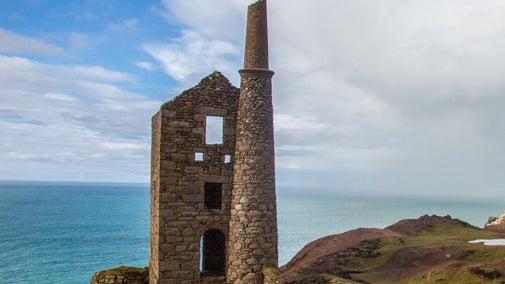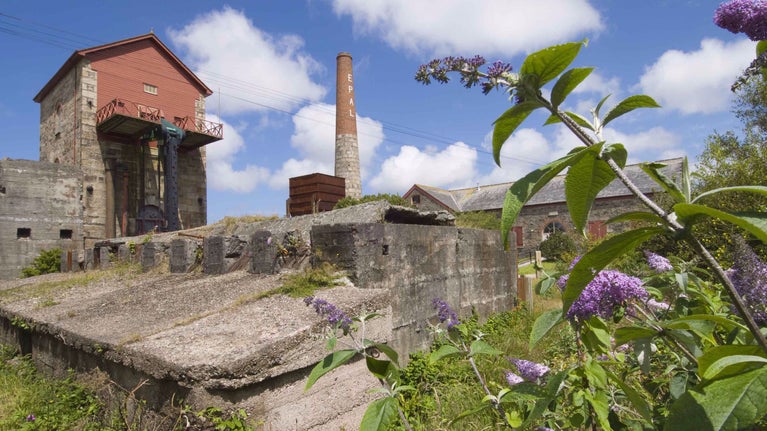
Discover more at East Pool Mine
Find out when East Pool Mine is open, how to get here, the things to see and do and more.
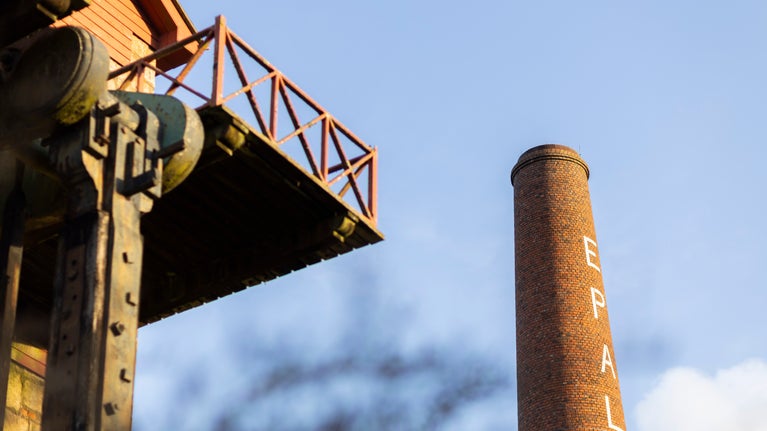
In the middle of an urban Cornish community, East Pool Mine’s engine houses and surrounding buildings hold the stories of fortunes made for a select few through the labour of many, stories of preservation and survival, of industrial innovation and of the international impact of Cornish mining.
The business of tin mining at East Pool began in the late 17th century, when the area was known as Tregajorran. The land was owned by the Basset family, who leased setts (areas of land for mining) to people in return for a share of their earnings. In a lease of 1698, Francis Basset granted William Burrell of St Ives ‘full power and authority to dig delve work and search for tin or any other mines or metals in certain tin works and tin mines commonly called the Poole’.
In 1737 the Bassets commissioned William Doidge to make a survey map of their land and its tenancies. East Pool appears as ‘Pool Work’, so called because an adit (a tunnel which drains water from a mine) ran into the old pool after which the village was named. Pool Work was a lucrative place, earning the Basset family the equivalent of millions of pounds by the middle of the century.
By the 1780s, the extraction of shallow copper deposits on Anglesey, North Wales, caused the market value of ore to plummet. Pool Work became unprofitable, and mining activity began to decline.

In February of 1835, East Pool Mine was reopened in pursuit of copper. At just 16 fathoms (29 metres) down, a large lode of copper was discovered, and East Pool made a profitable start.
As East Pool's workings became deeper and wider, more power was needed to haul out their ore. In 1887, a 30-inch beam winding engine, known as a whim, was installed. This engine was designed by Francis Michell of Redruth and made by Holman Brothers of Camborne. Named ‘Michell’s Whim’ after its designer, it operated fast at 17 strokes a minute.
Michell's Whim was the last engine of its kind to be made in Cornwall. It hauled ore for the next 34 years until a large underground rock movement blocked the shaft.
On the southern edge of East Pool lies the Agar sett, which was mined for copper in the 1700s and named Wheal Fortune. Ironically, it didn't make a fortune for its investors.
In 1836, it employed 55 men and reopened as Wheal Agar. It still did not prove profitable and was eventually mothballed. Not until Joseph Lyle arrived as Mine Captain in 1846 were productive lodes found and worked.
Flooding was a constant threat at Wheal Agar. Pumping out the water was expensive and often pushed the mine into financial loss. Meanwhile, the neighbouring profitable East Pool mine was pursuing the same mineral lodes and benefitted at Agar’s expense.
By 1896 the situation was critical. Wheal Agar’s shareholders decided to switch off their pumping engine to save on costs. Water was soon flooding into East Pool and men were being laid off. East Pool now needed to buy Wheal Agar to get the pumps switched back on, but the two sides could not agree terms.
After the intervention of Lord Robartes, the ‘Mineral Lord’ who owned the land, a deal was done on 10 March 1897. The two mines became East Pool and Agar United, and the pumps were switched back on.
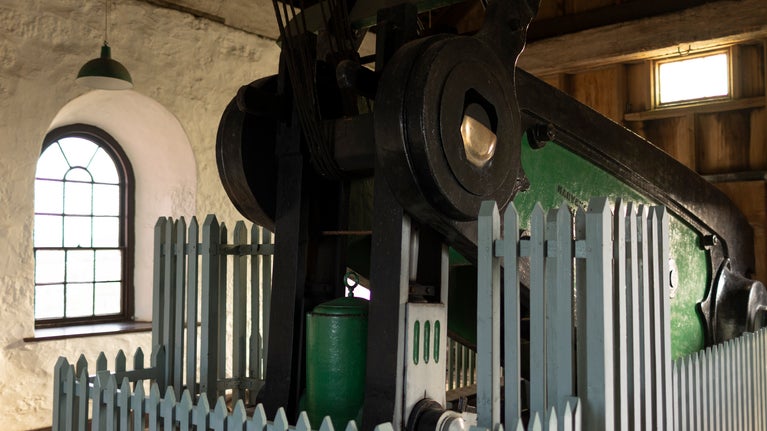
The first task was to drain the mines flooded by the dispute. It cost shareholders £16,000 (about £1.5 million today) and took an entire year. Thereafter, the mine had a very productive life, raising 92,000 tons of copper ore and 47,000 tons of tin ore.
In 1913 the business became a limited company called East Pool & Agar Limited, known as EPAL. The acronym was also the trade name of the company’s arsenic product, which it sold in large quantities. EPAL was proudly built into the brickwork of the 110-foot-tall chimney still standing over the site today.
There was a global economic depression in 1921. Global tin prices collapsed and so did East Pool shaft. The shaft’s electric water pumps were destroyed by the rockfall, and Michell’s Whim was unable to operate. EPAL’s only option was to write them both off and sink a new shaft away from the instability.
The new Taylor Shaft was down 380 metres by 1923. It was named for M. T. Taylor, the mine’s manager. Up above ground, a sawmill, rock-breaking station, carpenter’s shop, electrical substation and air compressors were installed. A fast, horizontal beam winding engine made by Holman Brothers, which had been bought from Botallack Mine when it closed in 1914, was also commissioned.
A towering new granite engine house was built to accommodate an enormous 90” pumping engine which could keep the shafts clear of water. EPAL had bought this engine second hand from neighbouring Carn Brea Mine after it closed.
Taylor’s Engine, weighing 125 tonnes when installed, features one of the heaviest bob beams ever made for a Cornish pumping engine, crafted by Harvey & Co Limited of Hayle. The steam to power the engine was provided by five large Cornish boilers housed next door in a boiler house. This colossal machine, the last of its kind in the world, operated until 1954 when electric pumps took over.
During the Second World War (1939-45) the mine came to rely on contracts with the government’s Ministry of Supply to stay in operation. The last of these contracts was terminated in March of 1945, and with it, mining at East Pool stopped. Only Taylor’s Engine kept working, because without it, the neighbouring mine at South Crofty would flood.
Following the closure of the site, anything with scrap value was sold to pay off the company’s debts. Taylor’s Engine was bought by Dr Greville Bathe, a steam engineering historian from America, who then passed it to the Cornish Engine Preservation Society (CEPS). In 1967, the CEPS (now known as the Trevithick Society), gave East Pool Mine, including Taylor’s Engine and Michell’s Whim to the National Trust.
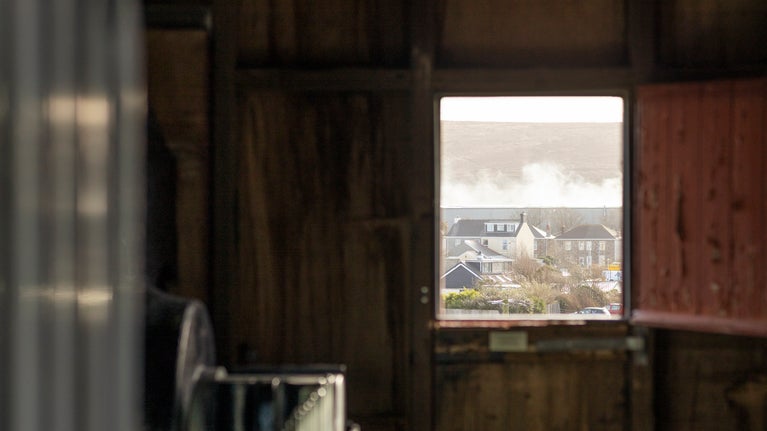

Find out when East Pool Mine is open, how to get here, the things to see and do and more.
East Pool Mine is open for guided tours and it is recommended that you book your visit in advance. If you're planning a visit to East Pool Mine, read this article to find out everything you need to know.
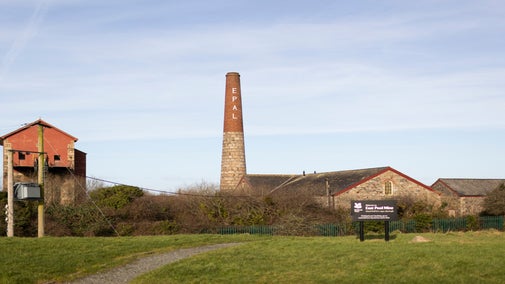
Discover more about mining at Levant Mine and Beam Engine. Find out the key dates of interest and the kind of work that was carried out here.
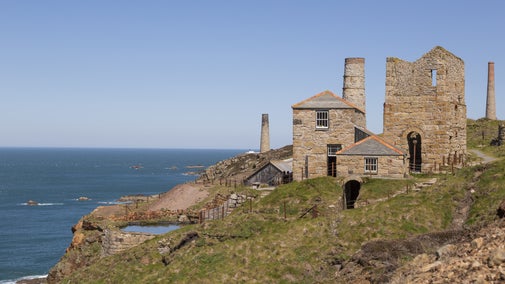
Find out more about the Tin Coast, steeped in history, and discover the remains of the mine buildings at Botallack which give a fascinating glimpse into Cornish mining over a century ago.
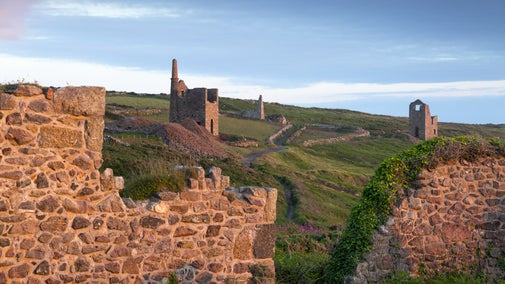
World Heritage status is given to culturally important sites to be protected for future generations. Find out more about the significant sites within the Cornish Mining World Heritage landscape.
